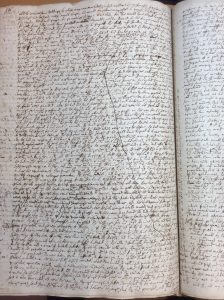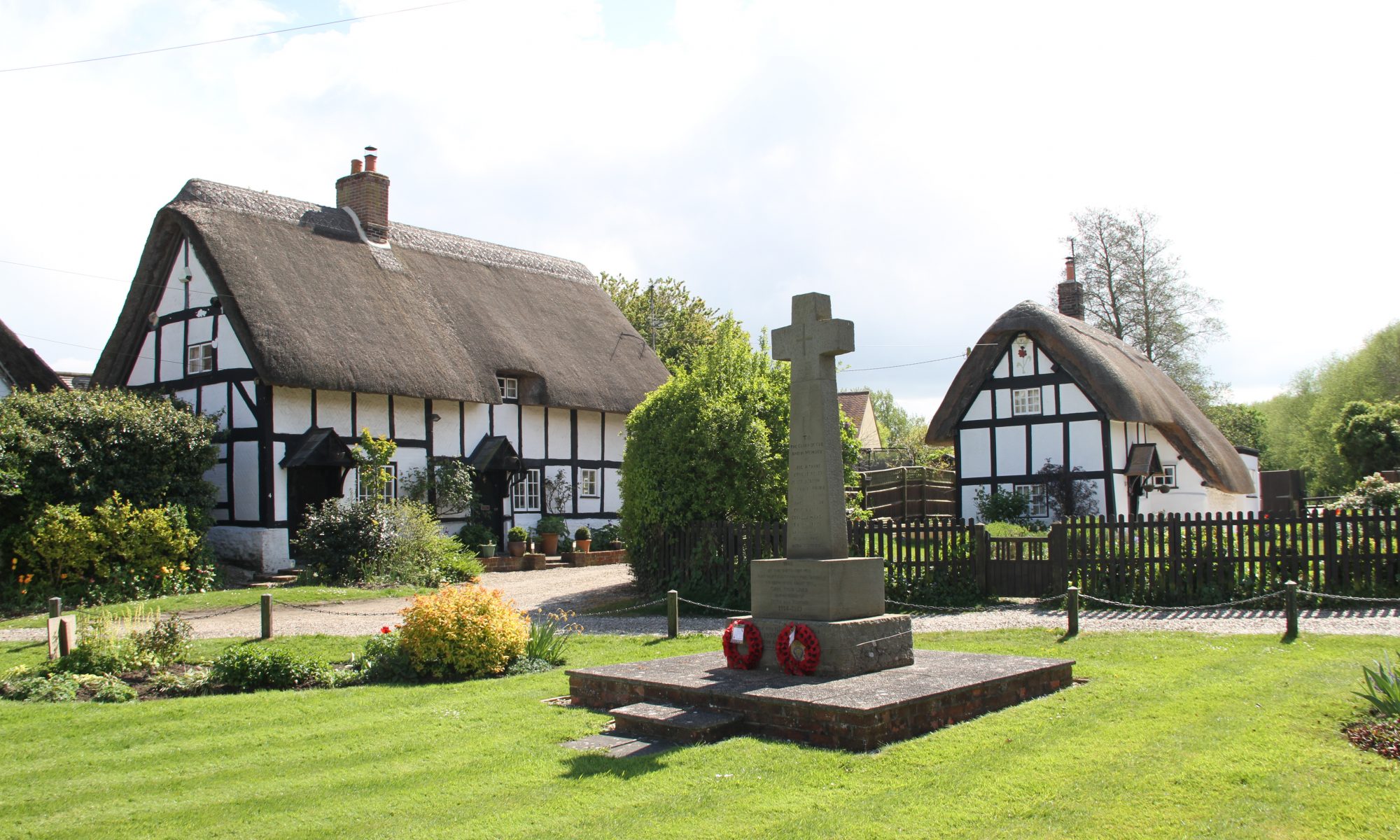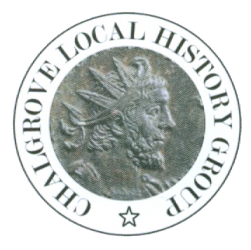Edward Hyde’s Manuscript written on the day of the battle, with a Transcrpt by Derek Lester.

Transcript
Clarendon’s footnote
E.Hyde, The History of the Rebellion and Civil Wars in England, Macray Vol III (1888) footnote 3 pp. 53 – 55
Clarendon State Papers – The History of the Rebellion
Bodleian. MS. Clar. 112 Folio 366
3 [The Life is here resumed at p. 224, for ѯѯ 75 – 79 ; while the MS. of the Hist. continues as follows :-
‘At the same time when the earl of Essex began his march from Reading, colonel Hurry, a Scotchman, who had served in that army from the beginning with great reputation, (as he was an excellent commander of horse,) till the difference that is before spoken of between the English and Scotch officers, (after which he laid down his commission, though, out of respect to the earl of Essex, he stayed some time after with him as a volunteer, and now,) came to the King to Oxford, having before given notice to the earl of Brainford that he meant to do so. He came no sooner thither, than, to give proof that he brought his whole heart with him, he proposed to prince Rupert to wait on him to visit the enemy’s quarters, and being well acquainted with their manner of lying and keeping their guards, undertook to be his guide to a quarter where they least expected : and the prince, willingly consenting to the proposition, drew out a strong party of one thousand horse and dragoons, which he commanded himself, and marched with colonel Hurry to a town four or five miles beyond the head quarter, where were a regiment of horse and a regiment of dragoons, and about daybreak fell upon them, and with little resistance , and no loss of his own men, he killed and took the whole party, except some few, who hid themselves in holes or escaped by dark and untrodden paths. From thence, in his way back, according to purpose, he fell upon another village, where some horse and a regiment of foot were quartered, where he had the same success, and killed and took and dispersed them all. So he having fortunately performed all he had hoped, his highness hastened his retreat as fast as he could to Oxford, having appointed, a regiment of foot to attend him at a pass in the way of security. But the alarum had passed throughout all the enemy’s quarters ; so that before the prince could reach the pass where his foot expected him, he found the enemy’s whole army was drawn out, and a strong party of their horse, almost equal to his own number, so hard pressed him that, being then to enter a lane, they would disorder his rear before he could join with his foot, which were a mile before. He had very little time to deliberate, being even at the entrance to the lane. If he could have hoped to have retired in safety, he had no reason to venture to fight with a fresh party, excellently armed, and in number equal, his own being harassed and tired with near twenty miles’ march and laden with spoil and prisoners, scarce a soldier without a led horse : but the necessity obliged him to stay ; and after a short consideration of the manner of doing it, directing as a convoy as was possible to guard the prisoners, and to’ hasten with all the unnecessary baggage and led horses, he resolved to keep the ground he had in the plain field, and after a short pause, to charge the party that advanced, lest the body might come up to them. And they came on amain, leaving it only in his election, by meeting them to have the reputation of charging them, or by standing still to be charged by them. Hereupon they quickly engaged in a sharp encounter, the best, fiercest, and longest maintained that hath been by the horse during the war ; for the party of Parliament consisted not of bare regiments and troops which usually marched together , but of prime gentlemen and officers of all their regiments, horse and foot, who being met at the head quarter, upon the alarum, and conceiving it easy to get between prince Rupert and Oxford, and not having their own charges ready to move, joined themselves as volunteers to those who were ready, till their regiment should come up ; and so, the first ranks of horse consisting of such men, the conflict was maintained some time with confidence. In the end, many falling and being hurt on both sides, the prince prevailed, the rebels being totally routed, and pursued till the gross of the army was discovered ;and then his highness, with the new prisoners he had taken, retired orderly to the pass where his foot and former purchase expected him ; and thence sending colonel Hurry to acquaint the King with the success, who knighted the messenger for his good service, returned, with near 200 prisoners, seven cornets of horse and four ensigns of foot, to Oxford. On the King’s part in this action were lost, besides few common men, no officers of note, but some hurt : on the enemy’s side, many of their best officers, more than in any battle they fought, and amongst them (which made the names of the rest less inquired after by the one and less lamented by the other) colonel Hambden, who was shot into the shoulder with a brace of pistol bullets, of which wound, with very sharp pain, he died within ten days, to as great a consternation of all that party as if their whole army had been defeated and cut off.’]
Return to main battle page

